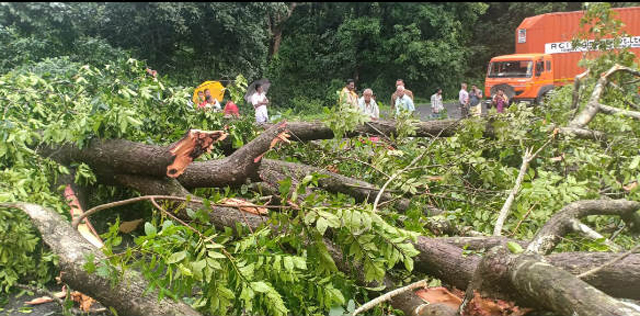Mumbai, Jun 17: Union Road Minister Nitin Gadkari today said the government was working on a scheme under which highways in far-flung areas can be used for aircraft landings and take-offs, and airports can be made where none exist.
"Along with Defence Ministry, we are thinking on a proposal. We are making our national highways of cement and concrete. We can use them as airports and are identifying sites. The vehicular traffic will be stopped when an aircraft will be landing and once it leaves, the vehicle traffic will resume," Gadkari said at an event by Forum for Integrated National Security (FINS) here.
He clarified that the plan was to use the highway network to handle both civilian and military aircraft movement.
The discussions are being held with the Defence Ministry because many of these sites can be near the border areas, he said.
Even as he declined to disclose the sites which can be used for such aircraft movements or the number of such sites, Gadkari cited pockets in Arunachal Pradesh, which can benefit from such an arrangement.
He added that the traffic was also low in Arunachal Pradesh which can easily facilitate the flight movements as is being envisaged.
When asked if the roads will be able to take the aircraft, Gadkari said a majority of the new highways are being built of cement and concrete, which can comfortably take such loads.
It can be noted that a few years ago, the Indian Air Force had landed one of its frontline fighter aircrafts on a highway in north India to assess defence preparedness.
Gadkari elaborated that separate holding areas can be created along a highway where the aircraft can taxi to after landing, and can come back on the highway for take off after de-boarding and boarding.
He said having such an arrangement, where the road was put to use for multiple uses will be very cheap as compared to erecting a full-fledged airport.
Gadkari said the government has accorded high priority for expanding air connectivity and wants to build 350 airports across the country.
Meanwhile, making a case for ending corrupt practices at ports, Gadkari said the network of "liasoning and servicing agents" which ensure passage of containers should be destroyed. He also welcomed complaints in this regard.
Gadkari also said that the country was interested in building a road in Myanmar, which can be further extended into Thailand and can help serve India's interests deeper in the south east Asia.
Having clinched the Chabahar Port in Iran, India will also be looking at helping create road and rail connectivity in Iran so that its interests in Afghanistan and further into Central Asia can be served, he said.
He said the national highway network, which spans 1.55 lakh kms at present, will touch 2 lakh kms in the next 2-3 months.
Gadkari said he has requested Delhi Chief Minister Arvind Kejriwal to relocate some of the logistic parks on the upcoming bypasses which will help reduce pollution in the national capital.
He said amendments to the Motor Vehicle Act are also being planned and added that one of the plans is to make it compulsory to have air conditioned cabins for trucks, given the large amount of time drivers spend in the vehicles in hot condition.
A car scrapping policy is also in the works, which will come into effect along with switching to lower polluting engines, Gadkari said, adding that the scrapping of cars has the potential to make the country as the number one car manufacturing hub in the world.
While impressing the need for the people to be more aware, Gadkari said accidents like the one on the Mumbai-Pune expressway which killed 17 people could have been avoided if people were not mending a car puncture in the middle of the road.







Comments
Gadkari thinks this is Sugar Cane Farm, Where he can go and relieve him self.
Talking non sense.
Add new comment